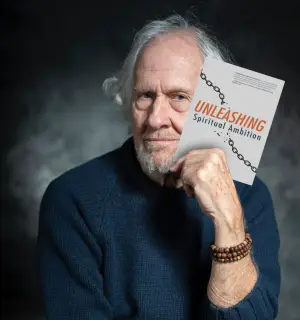Notes on Infinity: A Journey of Ambition and Disappointment
When I first came across Notes on Infinity by Austin Taylor, I was drawn in by the promise of a thought-provoking narrative set in the hallowed halls of Harvard. As a woman in STEM, the premise of two ambitious undergrads uncovering a lead in reversing aging was not just intriguing, but deeply relevant. The blend of scientific ambition and personal growth hinted at a captivating exploration of youth, dreams, and the often murky waters of ambition.
The journey of Zoe and Carter is, at its heart, a coming-of-age story. I must admit, for about 80% of the book, I was utterly enthralled. Taylor’s writing flows beautifully, intertwining the philosophical depths of Zoe’s introspection with the realities of academic pressures and external influences. Zoe’s character resonated with me deeply; her rollercoaster of ambition and idealism mirrored my own experiences as a post-grad navigating the daunting landscape of the startup world—though thankfully, mine hasn’t involved reversing the aging process!
Zoe’s journey is relatable, and I appreciated the authenticity of her struggles. Some critiques I’ve read questioned how she could lose sight of her scientific goals, but as someone who has felt the magnetism of other opportunities, I found her divergence entirely believable. The pressures that can lead one astray are all too real and often overlooked.
The relationship dynamics play a significant role in the story, particularly between Zoe and Carter. Initially, their connection felt electric—“they were inevitable,” as Jack points out. But as the story progresses, there’s a certain strangeness to their bond that remains ambiguously unexplained, and that left me with more questions than answers. This lack of resolution added to my overall sense of uncertainty about what the narrative was trying to convey.
Jack’s perspective was a refreshing shift from Zoe’s straightforward narration, offering a dreamlike quality that stood in stark contrast. It added layers to the story, helping to illuminate the complexities of his relationship with Zoe. I understood his motivations and felt that his viewpoint was crucial to grasping the emotional undercurrents of the plot.
However, the real blow came at the ending. I can’t quite express how disheartening it was to see Zoe’s arc conclude in failure without redemption. It felt like a disservice to her growth and struggles. Was this the message we were supposed to take away—that losing ourselves in our dreams leads to downfall? In a male-dominated field, seeing a female character’s journey culminate in disappointment was particularly jarring and frustrating. I felt robbed of a hopeful resolution, especially when Zoe’s journey had the potential to serve as a powerful lesson or inspiration.
In conclusion, while Notes on Infinity offered a rich exploration of ambition and personal transformation, its ending left me feeling unfulfilled. Austin Taylor’s writing shines throughout the majority of the book, and I would definitely be interested in his future work. However, I find it hard to recommend this particular story without caveats.
For readers who appreciate introspective narratives with philosophical depth, there’s much to enjoy here. But be prepared—Zoe’s conclusion is a bitter pill that might dampen the otherwise vibrant journey you embark on within these pages.
Discover more about Notes on Infinity on GoodReads >>






